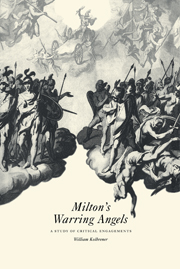6 - Those Grand Whigs, Bentley and Fish
Published online by Cambridge University Press: 23 November 2009
Summary
In the mid-seventeenth century, the Cambridge philosophers, with an allegiance both to the new science and traditional theology, sought to escape two equally dangerous heresies: both the emergent Cartesian dualism between spirit and matter and the radical monism embodied in ancient and modern “hylozoism.” But in Cudworth's True Intellectual System, as we saw in the previous chapter, the simultaneous adherence to an ontological monism, guaranteeing God's participation in his creation, and dualism, guaranteeing his separateness from creation, led to explicit contradiction, if not to bizarre conceptual offspring – his “plastic nature” for example. Although the identification of spirit with matter in philosophical argument through the “plastic nature” could be deployed in the assault against Cartesian mechanism, it was itself symptomatic, as the obsessive and compendious discourses of the True Intellectual System attest, of the equally unpleasant and “atheistical” alternative of “hylozoism.”
Implicit in the ontological monism raised to combat the new science, lay the possibility of – from the point of view of Christian belief – a far more devastating dualism. Matter endowed with its own spirit, divinity interiorized, would leave a disinterested, if not debilitated God, rendered increasingly irrelevant, ultimately to be subsumed entirely by his creation. By attributing “motion to matter and treating the universe as an exclusively material entity,” those whom Cudworth called hylozoists broke the link that “connected the individual human being to God.” They were thus guilty, as Robert E. Sullivan explains, of advocating atheism. To outflank the mechanists, Cudworth risked the appearance of an alliance with the hylozoists, Deists, and free-thinkers. The True Intellectual System reads like one man's confrontation with his alter ego. From a philosophical, as well as personal point of view, the battle was unwinnable.
- Type
- Chapter
- Information
- Milton's Warring AngelsA Study of Critical Engagements, pp. 107 - 132Publisher: Cambridge University PressPrint publication year: 1997

